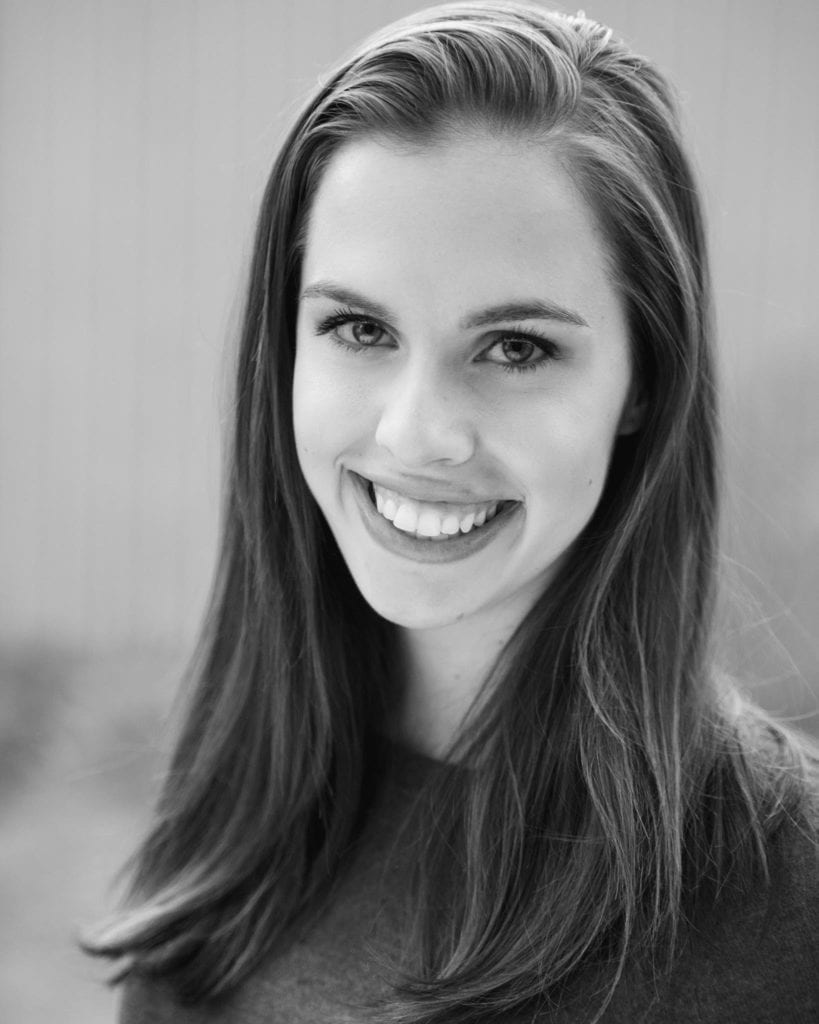
Ashley Campbell is the sound designer for our season opener, Tiny Beautiful Things. She’s worked with BETC in the past on shows including The Revolutionists and The Wolves, and we’re thrilled to hear what she’s got coming up for us this fall!
Ashley, what made you curious about the field of sound design in the first place?
I only got into Sound Design because as a theatre major at DU, we had to take a design course, and Sound was being offered the quarter I needed to do a design class. While taking the course, I discovered that I really enjoyed the process of creating sounds. It was one of the most exciting classes I took throughout all of college. So then, I just kept doing it.
Creating sound design for theatrical production goes a long way beyond picking appropriate tunes. When you first read a script, what kinds of clues shape your design choices?
Choosing music for a show is my LEAST favorite part of sound design. It doesn’t really feel like I’m doing or creating anything that way. When I first read a script, I look for written sound cues and effects that the playwright requests. Then I look for sound hints the text gives me: for example, they could be in the setting description, or when a character talks about something they hear that isn’t necessarily written specifically as a sound effect. Then the last part of sound design is developing the mood of the play. I think about how the audience should feel before the play begins, and then I choose music and sounds based on that mood for pre-show. As a sound designer, I ask how the sound can help support the mood of the production in any given moment, for every moment of a show!
Tell us a little about what the world of Tiny Beautiful Things will sound like. What should we listen for?
I like to describe the soundscape of Tiny Beautiful Things as homey and comforting. I will be creating beats out of everyday objects and tiny, beautiful things we find in the real world. You should listen for the sound of a page turn, a teaspoon hitting a mug, a bell that says “dinner is ready”, a lamp turning on and off.
What’s something you wish more people knew about sound design?
I think people think of sound design as more of a technical art than a creative art. Therefore, they believe they don’t know how to tell if a sound design is well-done or not. (This is one of the reasons why they got rid of the Sound Design Tony Award in 2014.) If a sound moves you in any way, that’s good sound design. You can’t see it like other design elements, but sound still has a subjective element to it. More than anything, sound is there to help you feel. So if it does that, it is successful.
What’s the oddest sound that you’ve ever had to create for a show, and how did you make it?
I’ve sound-designed multiple productions of Eurydice by Sarah Ruhl now, and the moment that Orpheus travels to the underworld is always one of my favorite sounds to make. It doesn’t seem odd on its own, but it’s a large sound moment for that play. I used a lot of odd sounds for it – sounds of elephants stomping, a tree falling down, earthquake rumbles, on top of the enchanting music Orpheus bellows into his new world. I think more often that not, I’m not asked to do odd noises, as much as I decide to take seemingly normal cues and use odd ways to make them come alive.
